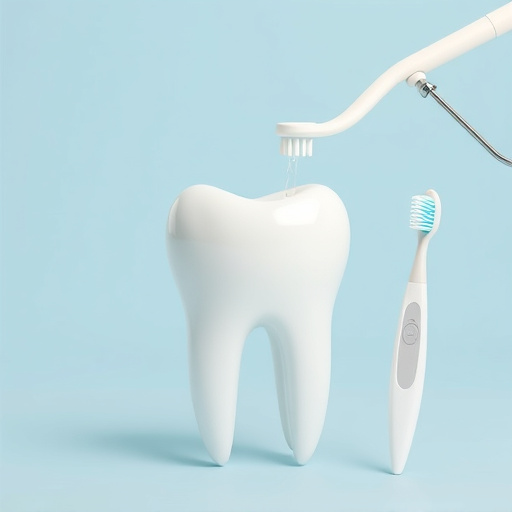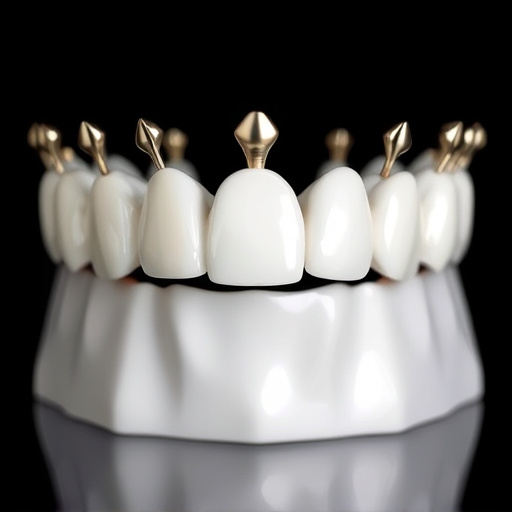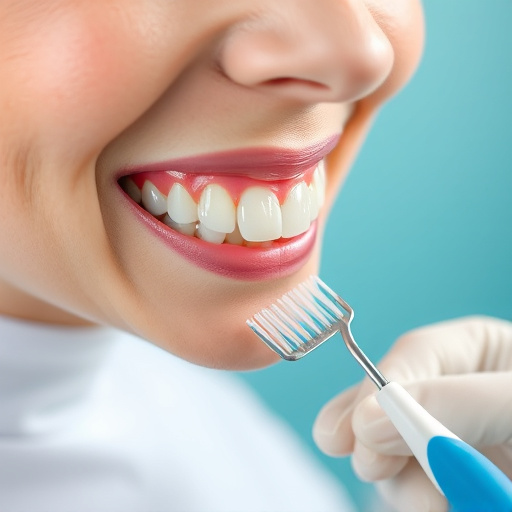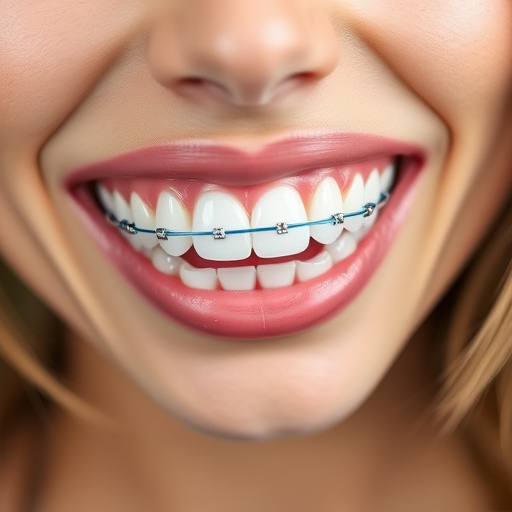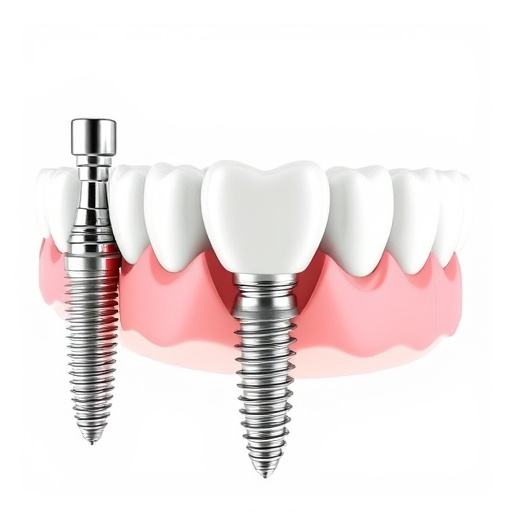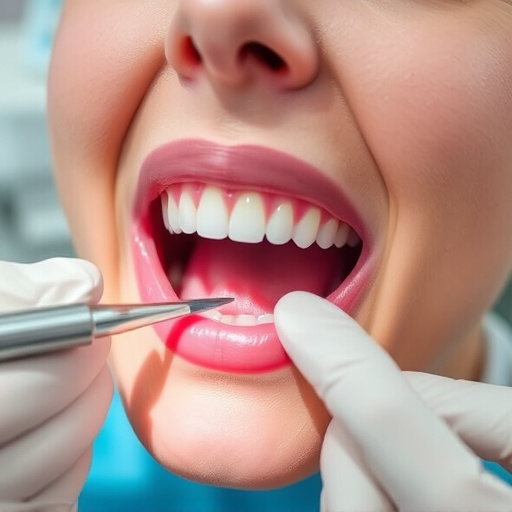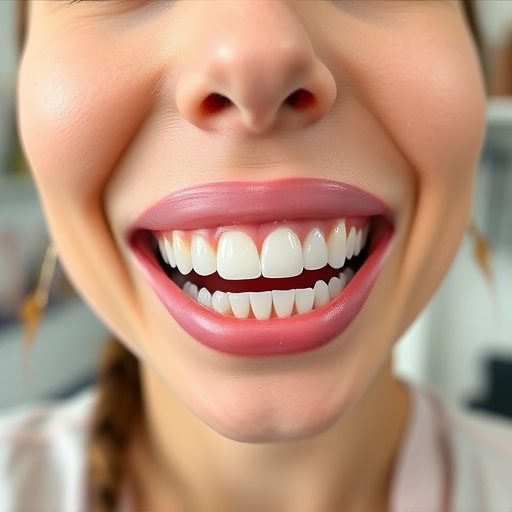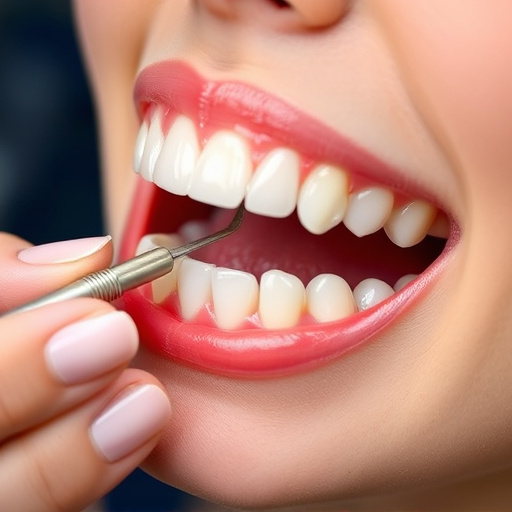Teeth grinding (bruxism) causes dental wear and jaw issues like TMJ. Night guards, custom-fitted to prevent teeth contact, reduce damage, ease pain, and complement oral hygiene. They're crucial for managing clenching, preventing long-term damage, and aiding post-procedure recovery. Choose a guard with comfort, fit, durability, and tailored features for best results.
Do you suffer from jaw pain due to teeth grinding? This common condition, known as bruxism, can cause significant discomfort and even lead to dental damage. Fortunately, a simple solution exists: night guards. In this article, we explore the impact of teeth grinding on your jaw and how custom-fit night guards provide much-needed relief. Learn about the benefits, choosing the right guard, and reclaim your peaceful sleep.
- Understanding Teeth Grinding and Its Impact on Jaw
- The Role of Night Guards in Mitigating Pain
- Choosing the Right Guard for Effective Relief
Understanding Teeth Grinding and Its Impact on Jaw

Teeth grinding, also known as bruxism, is a common sleep disorder where individuals unconsciously clench or grind their teeth. This habit often occurs during the night, making it difficult for the person to remember or recognize. While it might not seem like a significant issue, chronic teeth grinding can lead to severe dental problems and discomfort. The primary impact lies in the jaw joint, as the force exerted by grinding can cause excessive wear on teeth, leading to tooth repair challenges. Over time, this habit may result in temporomandibular joint disorder (TMJ), characterized by persistent jaw pain, headaches, and difficulty opening or closing the mouth.
A night guard for grinding is a highly effective solution to mitigate these issues. By wearing a custom-fitted dental guard during sleep, individuals can prevent their teeth from direct contact, thus reducing the wear and tear caused by grinding. This simple yet powerful tool plays a crucial role in maintaining oral health, ensuring that teeth remain intact and strong, and alleviating associated jaw pain. In addition to night guards, proper dental hygiene practices, including regular teeth cleaning sessions, can also help manage bruxism’s effects.
The Role of Night Guards in Mitigating Pain

Night guards for grinding play a pivotal role in mitigating pain associated with teeth clenching and bruxism during sleep. These custom-fitted oral devices act as a physical barrier, preventing the upper and lower teeth from coming into contact, thereby reducing the wear and tear caused by grinding. By minimizing tooth-on-tooth pressure, night guards help alleviate the stress on the temporomandibular joint (TMJ), the articulation between the jawbone and skull, which is often the source of excruciating pain.
Moreover, regular use of a night guard for grinding can be a proactive measure before procedures like wisdom tooth removal or when dealing with dental issues requiring crowns. In cases where emergency dental care is needed, having a night guard can help preserve the oral structure and reduce the intensity of post-procedure discomfort. This simple yet effective tool makes it easier to maintain overall oral health and prevent exacerbating existing conditions.
Choosing the Right Guard for Effective Relief

When considering a night guard for grinding, it’s essential to choose one that fits your specific needs and provides effective relief. Not all mouthguards are created equal; some are designed for general use while others cater to more severe cases of bruxism (teeth grinding). Look for features like custom fit, comfort, and durability when selecting a guard. A well-fitted night guard should comfortably cover your upper and lower teeth, ensuring they remain aligned during sleep.
Additionally, consider the materials used in its construction, as different options offer varying levels of protection. Some guards use soft, flexible silicone for gentle cushioning, while others employ harder plastics for added stability. For those with more pronounced grinding issues or existing dental problems like misaligned jaw joints, a guard incorporating features like bite plates and adjustable designs could prove beneficial. Remember, addressing teeth grinding early through comprehensive dental care, including routine oral exams and discussions with your dentist, is key to preventing long-term discomfort and potential damage to your dentition and temporomandibular joint (TMJ).
Night guards for grinding, or teeth clenching, are an effective solution for those experiencing jaw pain. By understanding the impact of this common condition and selecting the right protective gear, individuals can find relief and improve their overall well-being. A good night guard not only prevents wear on teeth but also offers a peaceful sleep, ensuring a healthier and more relaxed jaw for the morning.



